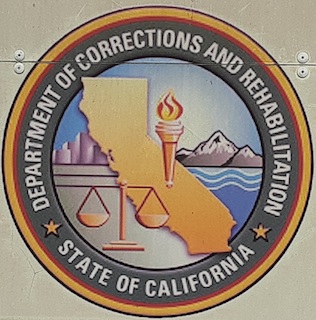In 2009, Wesley Wilson was convicted of two counts of lewd and lascivious acts with a child under the age of 14 using force or violence (Penal Code § 288(b)(1)) and one count of sexual battery (Penal Code § 243.4(a)).
After serving a state prison term, he was released to parole in 2018. The CDCR determined that Wilson was a “high risk” sex offender and imposed a residency restriction that “[Y]ou shall not reside within one -half mile of any public or private school (kindergarten and grades 1 through 12, inclusive) pursuant to section 3003(g).”
In 2019, Wilson filed a motion for relief under Penal Code § 1203.2(b)(1), asking the Alameda County trial court judge to “act on its [own] motion and modify the conditions of his parole to exclude the residency restrictions.” Wilson argued that he was currently homeless because he was unable to find any home available to him and such a restriction was harmful and contrary to the purpose of parole.
 Court of Appeal First Appellate District San Francisco
Court of Appeal First Appellate District San Francisco
The CDCR opposed the petition, arguing that the trial court was not authorized to modify Wilson’s parole conditions under Penal Code § 1203.2(b)(1) without a pending parole violation and, in the alternative, Wilson’s challenge to the residency restriction was meritless.
Nonetheless, the trial court judge issued an order modifying the residency restriction.
The CDCR appealed to the First Appellate District Court in San Francisco, arguing that without a pending parole revocation hearing or an alleged parole violation, the judge was not authorized to act as he did.
The First Appellate District then noted that Penal Code § 1203.2(b)(1) permits a judge to modify conditions of probation, but in 2012, it was amended to include mandatory supervision, community supervision and parole. However, the section did not allow a judge to terminate parole. The section also states, “a petition under this section shall not be filed solely for purposes of modifying parole.”
 CDCR Emblem
CDCR Emblem
The statute also states that a court “may modify, revoke, or terminate the supervision of the supervised person upon the grounds set forth in subdivision (a) . . .” Subdivision (a) states that a court “may revoke and terminate the supervision of the person if . . . the court, in its judgment, has reason to believe from the report of the probation or parole officer or otherwise that the person has violated any of the conditions of their supervision . . . has subsequently committed other offenses. . .”
In other words, Penal Code § 1203.2(b)(1), by incorporating subdivision (a), appears to limit the judge’s authority to modify supervision to instances where the supervised person violated a parole condition or committed other wrongdoing.
The First Appellate District then looked to the legislative history of Section 1203.2(b)(1) and found that after much debate, section 1203.2(b)(1) was amended to add, “[t]he court in the county in which the person is supervised has jurisdiction to hear the motion or petition, or for those on parole, either the court in the county of supervision or the court in the county in which the alleged violation of supervision occurred.” Nothing in the legislative history suggested that the Legislature intended to give courts jurisdiction over parolees that extended beyond the scope of an alleged parole violation.
Consequently, the First Appellate District reversed the trial court and agreed with the CDCR that the trial court judge lacked statutory authority to modify defendant’s parole condition.
We present this article because it is not uncommon for our office to receive calls from people asking us to go to court to ask a judge to modify a parole condition. We have apologized to the person, saying we cannot request such relief from a judge. We then explain that the CDCR has exclusive jurisdiction over parole conditions, as this recent opinion confirmed.
For more information about the separation of trial court powers and those of the CDCR, please click on the following articles:
 Court of Appeal First Appellate District San Francisco
Court of Appeal First Appellate District San Francisco CDCR Emblem
CDCR Emblem